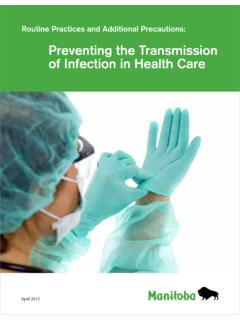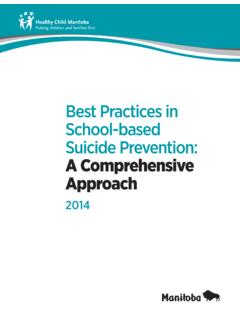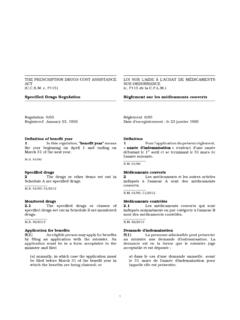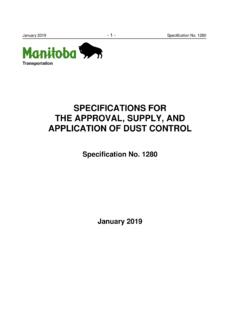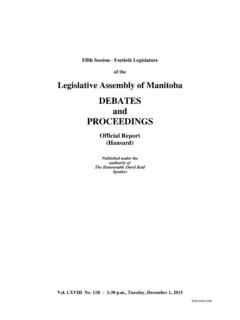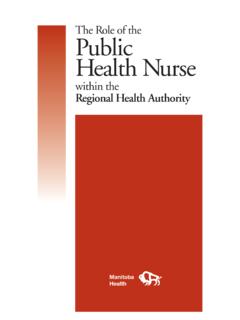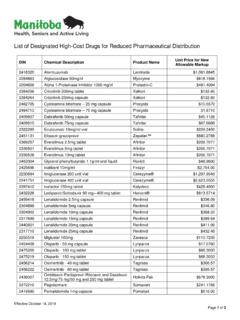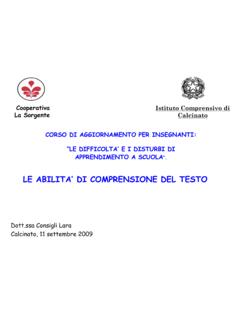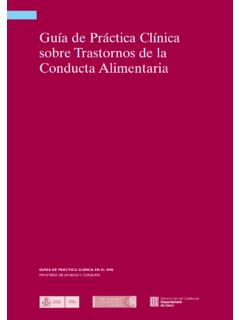Transcription of What Parents and Caregivers Need to Know About Fetal ...
1 Every Day is an Adventure: What Parents and Caregivers Need to Know About Fetal Alcohol Spectrum Disorder (FASD). Acknowledgements Healthy Child Manitoba leads our province's prevention and intervention strategy to achieve the best possible outcomes for Manitoba's children. Healthy Child Manitoba partners include: Manitoba Education and Training Manitoba Families Manitoba Health, Seniors and Active Living Manitoba Indigenous and Municipal Relations Manitoba Justice Manitoba Sport, Culture and Heritage/Status of Women Special thanks to the members of the development team and the Parents who shared their experiences to help others. he best strategy that we have used is the day to T. day or moment to moment experience. You have to take each day and each moment as it comes.
2 Table of Contents Introduction 3. What is FASD 4. Cultural Belonging 9. Strategies for Parents of Children and Teenagers with FASD 11. Building on Strengths 11. Structure, Routine and Consistency 13. Sensory Processing and Everyday Activities 15. Transitions 22. Learning 24. Impulsivity 25. FASD and Sleep 27. Your Environment 28. Ownership 31. Storytelling/Filling in the Blanks 32. Getting Along with Others 33. Communication 35. What Doesn't Work and Why 37. Finding Support 39. Helping Your Pre-Teen and Teenager with FASD 47. Understanding and Minimizing Secondary Impacts 47. Transitioning Your Teenager to Adulthood 50. Talking with Children and Teenagers About FASD 53. Grief and Loss 55. Taking Care of Yourself 57. FASD Resources in Manitoba 59.
3 References 61. 1. 2 What Parents and Caregivers Need to Know About FASD. Introduction This booklet is for Parents and Caregivers of children and teenagers with Fetal Alcohol Spectrum Disorder (FASD) to provide you with ideas About caring for your children to help ensure they have the best lives possible. Note: This booklet refers to anyone who is caring for, or involved in the care of a child with FASD, as a parent or caregiver. This booklet was written by Parents as well as professionals who work with FASD in the community. Included in each strategy section are comments from Parents who are caring for children with FASD. These are Parents who understand some of the challenges you are going through and want to help by sharing their experiences, from one parent to another.
4 Caring for a child with FASD is both rewarding and challenging for so many reasons. Parenting, in general, is hard work. When parenting a child with FASD, you need information About the disability as well as support and ideas About how to accommodate your child's unique brain differences. This booklet includes information About FASD what it is and what it means for your child. A. number of strategies will be provided. You may want to try some of these as you learn more About your child and how the disability has affected them. Since every child, parent and family is unique, not every strategy will work for everyone. You will likely find that the best strategies are built on developing a good relationship with your child and getting to know your child's strengths.
5 Introduction 3. What is FASD. The term Fetal alcohol spectrum disorder (FASD) is the diagnostic term* describing a range of neurodevelopmental impacts (ex: learning, behavioural, emotional) in children, youth and adults who were exposed to alcohol during pregnancy. Often, there are no physical features to show that the person has FASD, even though the brain is impacted. FASD is a hidden, brain-based disability. Every individual affected by FASD is unique, with their own strengths and challenges. y biggest struggle is that my children have a M. hidden disability because you can't tell by looking at them. People look at their behaviour and say why are they doing this? Always having to explain to others in your own family. You feel like you always have to explain to everyone why you are doing what you are doing as a parent.
6 * In 2015, Canadian FASD Diagnostic Guidelines changed to make FASD the sole diagnostic term. Prior to that, the following diagnoses had been used: Fetal Alcohol Syndrome (FAS), Partial Fetal Alcohol Syndrome (pFAS), and Alcohol Related Neurodevelopmental Disorder (ARND). Other associated terms have included Alcohol Related Birth Defects (ARBD), and Fetal Alcohol Effects (FAE). 4 What Parents and Caregivers Need to Know About FASD. Ten Brain Domains (Functions) Impacted by FASD. There are ten brain domains that can potentially be impacted by alcohol exposure during pregnancy. Having three or more brain domains significantly impacted may lead to a diagnosis of FASD. They are: Academic Achievement Neuroanatomy/. Neurophysiology Attention (brain structure and functioning).
7 Adaptive Behaviour, Social Cognition (thinking and Skills or Social reasoning). Communication Language Motor Skills (expressive and receptive). Executive Memory Functioning Affect Regulation (ability to control and adjust emotions). It is important for Parents to understand how the injury to certain brain domains from FASD is often the underlying reason for the most difficult behaviours of children and teenagers with FASD. Source: The Hidden Disability What is FASD 5. Ten Brain Domains (Functions) Affected by FASD. Alcohol affects the growth and formation of the brain, and this is often seen in an individual's behavior and development. The following brain functions or domains are evaluated by a diagnostic team during an FASD assessment: ACADEMIC ACHIEVEMENT EXECUTIVE FUNCTIONING.
8 May have difficulty in school: reading, math, may have trouble with planning, sequencing, comprehension (understanding) and abstract problem solving and organizing concepts may be impulsive and/or hyperactive difficulty understanding cause and effect and ATTENTION controlling behavior can be easily distracted, difficulty paying challenges with transitions and change attention and sitting still often repeats mistakes difficulty with concepts, abstracts ideas, COGNITION (Thinking and reasoning) consequences and managing time difficulty reasoning, planning, solving problems ADAPTIVE BEHAVIOR, SOCIAL SKILLS. and understanding complex ideas AND SOCIAL COMMUNICATION. wide range of IQ scores are found may not understand personal boundaries and LANGUAGE (Expressive and receptive) have difficulty reading social cues may be socially vulnerable and easily taken delay in language development advantage of difficulty understanding lengthy conversation difficulty seeing things from another's and instructions perspective may speak well, but not fully grasp the socially and emotionally immature and may meaning behave younger than actual age can repeat instructions or rules, but may not may have trouble with hygiene, money and follow through coping skills MEMORY MOTOR SKILLS.
9 Difficulty with long-term, short-term and difficulty with balance, strength, endurance, working memory coordination, reflexes and muscle tone may appear to lie, but is actually filling in the difficulty with printing, using pencil and blanks when unable to remember scissors trouble with memorizing and may seem forgetful AFFECT REGULATION. difficulty with accessing, selecting and (Ability to control and adjust emotions). organizing information when needed includes anxiety, depression and mood NEUROANATOMY/NEUROPHYSIOLOGY imbalance in the severe range (Brain structure and function) *meets DSM-V criteria could have a smaller head, brain size, seizure disorder and/or abnormal findings on a scan *Diagnostic and Statistical Manual (ex: MRI or EEG) consistent with prenatal alcohol exposure The Canadian FASD Diagnostic Guidelines were revised in 2015 and the Sensory Domain has been removed from the list above; however, the Manitoba FASD Centre will continue to measure and consider sensory functioning during an FASD assessment.
10 6 What Parents and Caregivers Need to Know About FASD. Developmental Age and FASD. As Parents , we have expectations for our children When you look at this profile, it may be easier based on their age (ex: Susie should be able to to see how a person with FASD can become clean her room without help because she is old frustrated and discouraged when, over time, enough ). This thinking assumes that your child is the expectations placed on them exceed their developmentally on track. Research shows that ability. This is described as a poor fit between children and teenagers with FASD are usually the abilities and the expectations placed on developmentally younger than their age peers in a person with FASD. This poor fit can lead to a number of areas.
